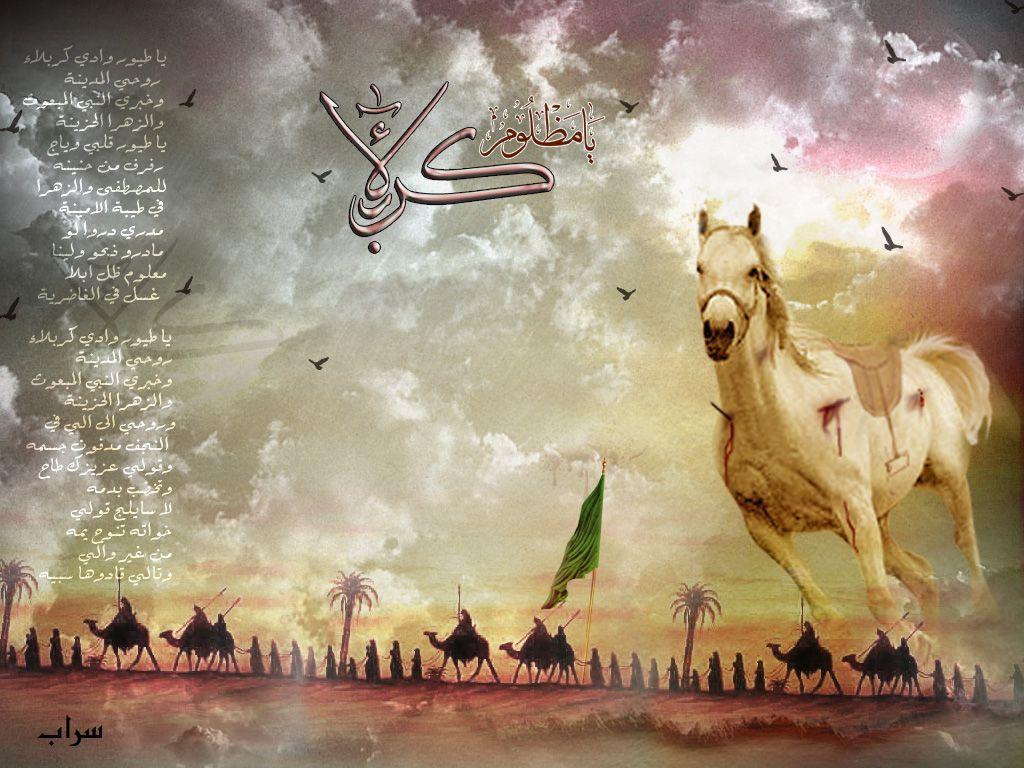The journey of Imam Hussain (peace be upon him) from Madina to Karbala is a significant and tragic event in Islamic history. This journey took place in the year 61 AH (Islamic calendar), corresponding to 680 CE. Here is a brief overview of the events leading up to the tragic Battle of Karbala:
- Uprising in Kufa:
Imam Hussain, the grandson of Prophet Muhammad (peace be upon him), received letters from the people of Kufa, inviting him to lead them against the unjust rule of Yazid ibn Muawiya, the Umayyad caliph. Responding to these calls, Imam Hussain decided to embark on the journey to Kufa. - Departure from Madina:
Imam Hussain left Madina for Mecca with his family and a small group of followers including women and children in the month of Rajab. However, upon reaching Mecca, he received news that the situation in Kufa had deteriorated, and the people were no longer supportive due to the intimidation and threats from Yazid’s forces. - Decision to Stand Against Tyranny:
Despite the changed circumstances, Imam Hussain refused to pledge allegiance to Yazid, considering his rule oppressive and against the principles of Islam. He made the courageous decision to stand against tyranny and uphold the values of justice, righteousness, and the true teachings of Islam. - Journey towards Karbala:
In the month of Dhul-Hijjah, Imam Hussain, along with his family and a small group of loyal companions, left Mecca for Kufa. The journey was challenging, marked by hardships, as Yazid’s forces attempted to obstruct and divert their path. Imam Hussain continued his journey, demonstrating resilience and determination. - Arrival in Karbala:
The caravan of Imam Hussain reached the plains of Karbala on the 2nd of Muharram. Yazid’s army, led by Umar ibn Sa’ad, surrounded them and cut off their access to the Euphrates River. The tragic events unfolded in the following days, leading to the martyrdom of Imam Hussain and his loyal companions on the 10th of Muharram, known as the day of Ashura. - Martyrdom and Aftermath:
The Battle of Karbala resulted in the martyrdom of Imam Hussain, his family members, and loyal companions. The surviving members of Imam Hussain’s family, including the women and children, were taken captive and marched to the court of Yazid in Damascus.
The journey of Imam Hussain is often remembered for its profound moral and spiritual significance. It symbolizes the struggle against tyranny, the defense of justice, and the willingness to sacrifice one’s life for the principles of Islam. Various historical and biographical works contribute to our understanding of these events, though some details might vary across different sources.
Frequently asked questions1. Why did Imam Hussain leave Madina for Karbala?
Imam Hussain left Madina in response to the call for help from the people of Kufa, who sought his leadership against the unjust rule of Yazid. Despite facing challenges, he chose to stand against tyranny.
2. Why did Imam Hussain choose Karbala as the destination?
Imam Hussain’s caravan was intercepted by Yazid’s forces in Karbala. The circumstances forced them to halt, and the events of the Battle of Karbala unfolded on the plains of Karbala.
3. What role did the Euphrates River play in the events of Karbala?
The forces of Yazid, led by Umar ibn Sa’ad, cut off access to the Euphrates River for Imam Hussain and his followers. This deprivation of water became a source of immense hardship during the siege.
4. What is the significance of the day of Ashura in this context?
The 10th of Muharram, known as Ashura, marks the day of the Battle of Karbala and the martyrdom of Imam Hussain and his companions. It holds immense significance for Muslims, particularly within the Shia community, as a day of remembrance and mourning.
5. What happened after the Battle of Karbala?
The surviving members of Imam Hussain’s family, including women and children, were taken captive and marched to the court of Yazid in Damascus. This marked the aftermath of the tragedy of Karbala.
6. How is the journey of Imam Hussain commemorated today?
The events of Karbala are commemorated during the month of Muharram through mourning rituals, processions, and majalis (gatherings) held by Muslims, particularly in the Shia community. These ceremonies reflect on the values of justice, sacrifice, and resistance against oppression.

Leave a Reply